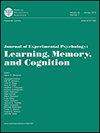How do theory of mind and formal language skills impact metaphoric reference comprehension during children's school-age years.
IF 2.1
2区 心理学
Q2 PSYCHOLOGY
Journal of Experimental Psychology-Learning Memory and Cognition
Pub Date : 2024-09-12
DOI:10.1037/xlm0001381
引用次数: 0
Abstract
Prior research has shown that school-aged children's metaphor comprehension becomes adultlike progressively. This has given rise to claims that the development of metaphor comprehension is due to children's evolving abilities with respect to theory of mind (ToM) or to formal language. The present work investigates the extent to which children's growing sophistication with metaphor is attributable to each of these. Experiment 1 validates a newly constructed tablet task-with two groups of children whose mean ages were approximately 7 and 10 (N = 89)-in which participants (a) listen to vignettes that conclude with either a metaphoric or a synonymic (control) reference and then (b) choose pictures (while latencies are recorded) that indicate whether the children understand the reference as intended. The outcomes from Experiment 1 confirm prior results: Accurate responding in the wake of a metaphoric reference increases with age; meanwhile, correct metaphoric responses take longer than synonymic ones. Experiment 2 tests a more expansive range of 6- to 11-year-olds (N = 248) and a wider array of tasks, including two clinical tasks measuring ToM and formal language skills which we use as cognitive predictors of metaphor accuracy and response times. Results show that ToM is a reliable predictor of successful performance on the metaphor task among younger children, before attenuating with age; in contrast, formal language is a predictor of metaphor comprehension that strengthens with age and is maximal in older children. This work underlines the importance of considering developmental perspectives when investigating the cognitive bases of metaphor skills. (PsycInfo Database Record (c) 2024 APA, all rights reserved).思维理论和正式语言技能如何影响学龄儿童的隐喻参照理解。
先前的研究表明,学龄儿童的隐喻理解能力会逐渐变得像成人一样。因此,有人认为,隐喻理解能力的发展是由于儿童在心智理论(ToM)或正式语言方面的能力不断发展所致。本研究调查了儿童隐喻能力的不断提高在多大程度上可归因于上述两种能力。实验 1 验证了一项新构建的平板电脑任务--由平均年龄约为 7 岁和 10 岁的两组儿童完成(N = 89)--在这项任务中,参与者(a)聆听以隐喻或同义词(对照)为结尾的小故事,然后(b)选择图片(同时记录潜伏期),以显示儿童是否理解了所要表达的意思。实验 1 的结果证实了之前的结果:随着年龄的增长,儿童对隐喻参照物的准确反应也会增加;同时,正确的隐喻反应比同义词反应需要更长的时间。实验 2 测试了范围更广的 6 至 11 岁儿童(N = 248)和更多的任务,包括两个测量 ToM 和正式语言技能的临床任务,我们将其作为隐喻准确性和反应时间的认知预测因子。结果表明,在年龄较小的儿童中, ToM 是成功完成隐喻任务的可靠预测因素,但随着年龄的增长,ToM 的作用会减弱;相比之下,正式语言是隐喻理解的预测因素,随着年龄的增长会增强,在年龄较大的儿童中作用最大。这项研究强调,在研究隐喻技能的认知基础时,从发展的角度进行考虑非常重要。(PsycInfo Database Record (c) 2024 APA, 版权所有)。
本文章由计算机程序翻译,如有差异,请以英文原文为准。
求助全文
约1分钟内获得全文
求助全文
来源期刊
CiteScore
4.30
自引率
3.80%
发文量
163
审稿时长
4-8 weeks
期刊介绍:
The Journal of Experimental Psychology: Learning, Memory, and Cognition publishes studies on perception, control of action, perceptual aspects of language processing, and related cognitive processes.

 求助内容:
求助内容: 应助结果提醒方式:
应助结果提醒方式:


